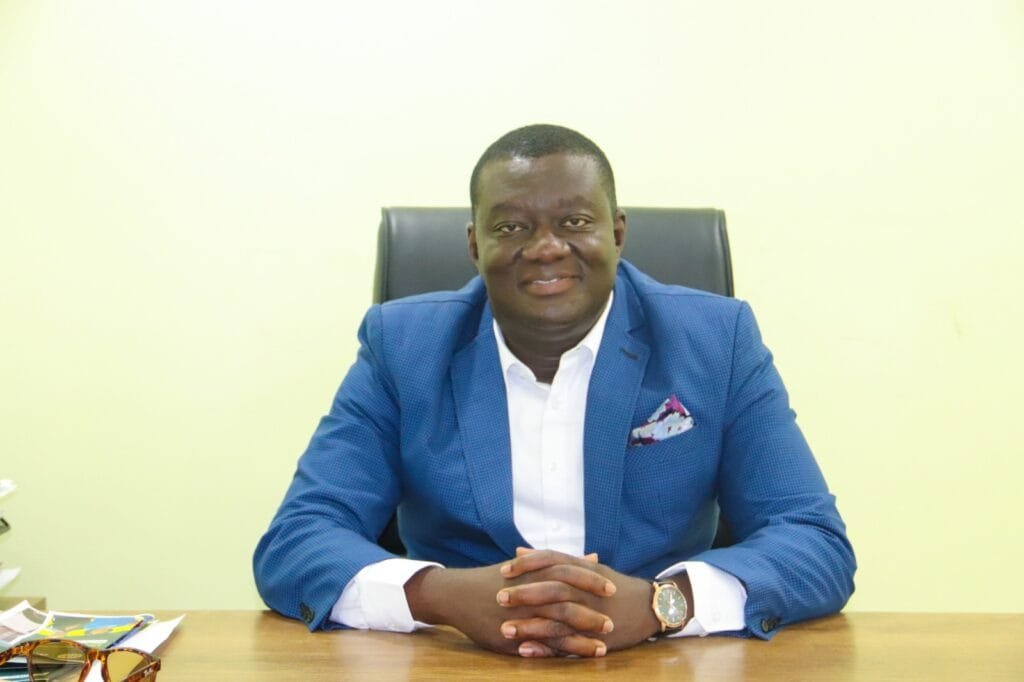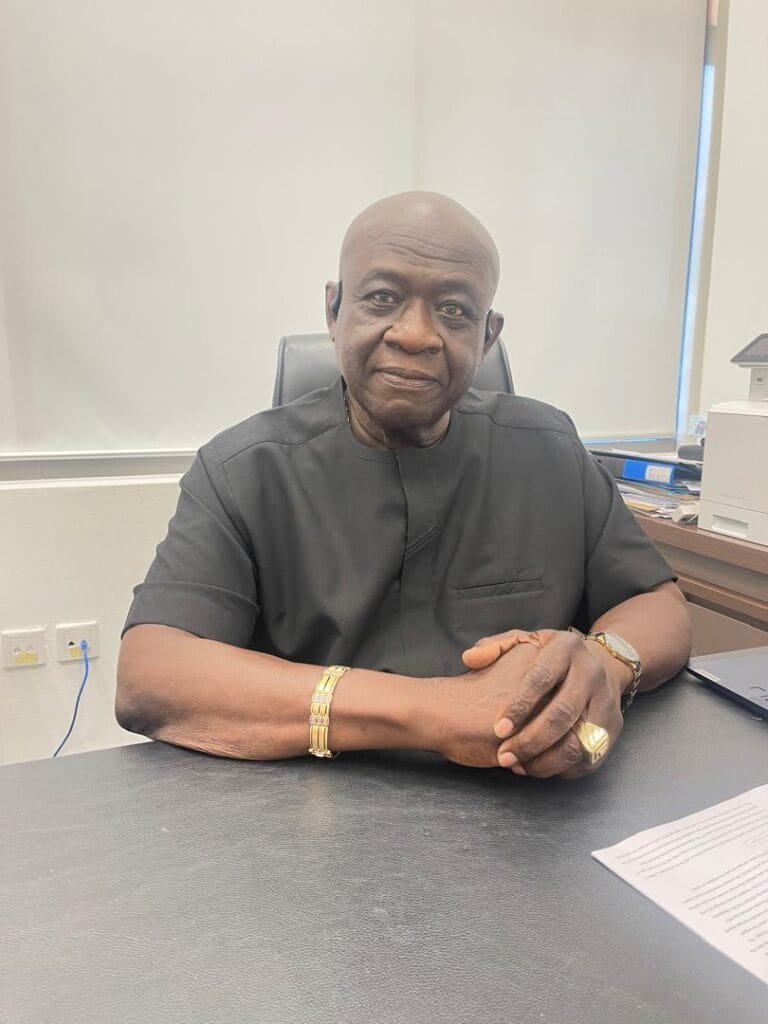‘For the many, not the few’: this has been Britain’s Labour Party slogan and manifesto mantra during the snap election earlier this year. It became so successful it was the message during its conference in the last week of September, 2017 and will be the anthem moving into future elections.
Despite not winning the snap election of June, 2018, this slogan indeed resonated with the many across the length and breadth of the country so much that, the Labour Party gained more seats. Its leader, Jeremy Bernard Corbyn, strengthened his base while the Conservative Party (Tories) despite winning the election, was weakened.
This slogan has been the anthem of champions or proponents of social development to constantly take place in tandem with economic development. For centuries or since the beginning of time, advocates have noted that if the two developments happen concurrently, the world would face no hardship neither will there be any form of disillusionment, which leads to chaos and conflict.
For sociologist and even some economists across the world, economic development must come hand in hand with social development for one simple reason: not everyone can move in tandem. Others, especially the minorities and marginalised, need that special attention to reach the heights gained by others.
Ghana has enjoyed an economic boom since its discovery of oil in 2007. The economy at one point grew by 14.4percent with the service sector overtaking agriculture as the biggest contributor to Gross Domestic Growth. Services including banking and finance, telecoms, technology, private-sector led education and health services and other sectors grew rapidly creating much needed jobs.
Despite all the gains made, not much changed in the social development of the country. The educational, health, water and sanitation situations did not grow in tandem with the economic boom. The jobs that were created did not match up to the growth in GDP with many Ghanaians growing disillusioned with the political leaders.
But then came a massive fall in global commodity prices especially in cocoa, gold and oil, the major contributors to revenue and foreign exchange. This led to a rise in inflation, currency instability, spike in interest rates and excessive government indebtedness to foreign and financial institutions. Coupled with a three energy crisis, Ghana did saw a decline in growth.
This economic downturn worsened the already precarious situation in the social development of the nation. Thousands of jobs were cut as a result of the energy crisis as businesses couldn’t stand the cost of power, which ballooned by more than 100percent due to high cost of fuel for generators and a spike in electricity tariffs and had to find prudent ways of staying afloat or going bust, which happened to many small and medium enterprises (SMEs).
Since 2012, the Social Division of the Institute of Statistical, Social and Economic Research (ISSER), University of Ghana has produced its flagship evidence-based research and analysis document titled Ghana Social Development Outlook (GSDO).
The biennial report focuses on social developments that seek to improve the lives of ordinary Ghanaians that are not necessarily economically driven. It also provides the much needed context-relevant and timely information and course material for teaching development-related social issues whiles analysing the impact of these developments and proffer recommendations.
Professor Felix Ankomah Asante, the Director of the institute, in the forward to the 2016 outlook –the latest– noted that the maiden edition was produced at a time the United Nations was about to fashion out a post- 2015 development framework with global consultations instituted on 11 areas fundamental to social development.
They were: inequalities, population dynamics, health, education, growth and employment, conflict and fragility, governance environment, sustainability, hunger, food and nutrition security, water and energy.
“In Ghana and other countries another dimension bordering on social issues came up for discussion and policy realignment. Social protection for the very poor and vulnerable was the answer and Ghana renamed its Ministry of Women and Children’s Affairs as Ministry of Women, Children and Social Protection. This was also at a time Ghana was drawing up an agenda for consolidating the country’s middle-income status,” he said.
The second edition in 2014, according to him, sought to answer social issues arising from the impact of Ghana scaling up efforts to meet outstanding Millennium Development Goals and targets.
“The 2014 GSDO provided an in-depth analysis of critical issues in contemporary social development in Ghana including privatization of education, youth employment, housing for the urban poor and abuse as an aspect of social relations of gender,” he added.
Has anything changed since 2012? Professor Asante asked, noting that the GSDO 2016 edition, which is the third in the series, adequately addresses this demanding question. He stated that the thematic areas addressed in this edition are in the broad headings of health, education, employment, housing, governance, water and sanitation, energy and environment.
With the current GSDO coming at a time the MDGs have ended and the world is now in a post MDG era, aptly named, SDGs, the report also touched on the legacy of the MDGs on various dimensions of social development policy and practice in Ghana and looks ahead to what the SDGs might mean for the country.

Health
For the millions of Ghanaians, what matters to them is the provision of quality but affordable healthcare. For decades, Ghanaians were faced with the menace of ‘cash and carry’ where healthcare was delivered after payment was made. This led to deaths that could be avoided.
The situation changed when basic healthcare services were offered on a National Health Insurance Scheme (NHIS). With more than half of Ghanaians below the poverty line, this social intervention brought relief to more than 10million Ghanaians.
Despite the flaws and challenges it faced and continues to face, including financing and management, the NHIS has come to the aid of Ghanaians and many lives have been saved through its use. The NHIS has led to an increment in the life expectancy of Ghanaians and millions do go to hospitals without fear of not having enough money on them to buy basic medicine or see a physician.
Other gains include improvements in child health and in maternal health care, notably with regard to maternal mortality, which declined from 503 in 2005 to 144 in 2014, but unequal chances of survival persist across regions. Deaths from malaria have gone down significantly and the prevalence rate for HIV shows a marginal decline.
Mental health care has improved, especially in personnel numbers, but funding continues to be a challenge as the legislative instrument for the establishment of a Mental Health Fund awaits enactment by Parliament.
The 2016 GSDO noted that there has been notable improvement in access to healthcare, especially at community level, and some gains in the number of critical healthcare professionals. The challenge, it pointed out, that remains is the inequitable distribution of healthcare services that disadvantages rural residents and the poor.
Due to the popularity of the NHIS, government between 2012 and 2016 embarked on an aggressive development of health infrastructure which led to the building of new hospitals and the expansion, upgrading and renovation of old ones with the most notable one being the Ridge Hospital which saw significant upgrades to top almost 900 beds.
The 2016 GSDO, in its recommendation noted that to bring about improvement in the health sector: a sustained effort to retain and equitably distribute health professionals; easier access to health facilities and resources; a sustained effort to promote the use of insecticide-treated nets in order to further reduce the incidence of malaria; and the development of a legislative instrument for the Mental Health Act, would be more than welcoming.

Education
One of the most topical and politicised sectors of Ghana’s economy, the education sector has seen a lot of political talk and little action in terms of progress.
In the 2012 elections, the two major political parties, the National Democratic Congress (NDC) and the New Patriotic Party (NPP), stipulated different arguments on how to provide the best education to the future of Ghana.
While the NPP offered free Senior High School (SHS) education, the NDC offered progressively free SHS which will focus on quality and sustainability and backed by massive infrastructural development in second cycle sector.
After winning the election in 2012, the NDC did build some of the 200 SHS facilities. Despite the provision of the infrastructure, it lost in last year’s election and the NPP has now launched its promise of free SHS albeit with some teething challenges.
Due to the constant attention given to pre-tertiary level of education between 2012 and 2016, tertiary education has been relatively neglected and continues to be neglected, except for the controversial policy to convert polytechnics into degree-granting universities, the impact of which is yet to be determined.
“Indeed, rather than a substantive discussion of access, equity, quality and relevance of the educational system, the sector became fodder for partisan politicking as the two main political parties made some form of free secondary education a major campaign promise during the 2016 presidential elections. The question of the appropriate duration of senior secondary education—which had its turn as an issue for partisan politicking in the early 2010s, did not receive much attention,” the report opined.
In 2014/2015, 68 percent of Basic Education Certificate Examination (BECE) candidates transitioned from junior high school into senior high school; implying the 32 percent of them truncated their education at the JHS level and were thrown prematurely into the job market, this is still the reality on the ground.
In its recommendation, the 2016 GSDO noted that given that much in the education sector has remained fundamentally unchanged in the past four years, the challenges there then, are still prevalent and should be attended to with utmost importance.
These include greater attention to learning outcomes as an indicator of quality of education; greater stress on equity, with specific reference to special education; better regulation of private institutions; and the urgent need for a comprehensive and long-term strategy for education that is relevant to the country’s development aspirations.
 Employment
Employment
Every new government has its own grand ideas on creating millions of jobs for the youth, who are chronically jobless. With an import driven economy, the youth, who hitherto, would have been employed in factories are left to do nothing as business leaders thrive in the commerce and services sector.
The extractive sector, which includes the oil and gas and mining sectors, saw declines in growth due to price declines on the commodities market globally and that led to some layoffs in the mines. With government’s aggressive crackdown on illegal mining, which some estimate provide jobs for a million young people, the already unquantifiable unemployment figures are set to rise.
The new government has promised a factory in each of the 216 districts, a stimulus package for distressed companies that suffered greatly from the three year energy crisis of 2013 to 2016 which could lead to a massive revamp in their operations and a National Entrepreneurship and Innovation Programme (NEIP) for young leaders.
All of these are expected to catapult the unemployed youth into jobs and improve their lives. With decent employment bringing a major boost to people’s quality of life as it is through work that individuals and families are able to meet their needs, work also confers independence and dignity to people.
Previously, some work has gone into laying the foundation for job creation especially in the private sector. The implementation of the Public Sector Management Reform Project imposed by the International Monetary Fund to trim public sector employees brought major reforms. Significantly, in May 2015, a National Employment Policy was launched, the goal of which is to provide gainful and decent employment opportunities for Ghanaians.
In the 2014 Ghana Living Standards Survey, it emerged that agriculture is no longer the major source of employment for Ghanaians and with respect to waged employment, the gap between women and men has narrowed slightly. Notably, decent work conditions have worsened in the past five years, with exceptions being tax deductions and entitlements to social security which have improved marginally.
The recommendations include greater attention to conditions of work in order to meet the standards of decent work both in existing jobs and in those that may be created by various employment- generating initiatives. The 2016 GSDO shines a light on the many Ghanaians who are domestic workers by calling for the ratification of the 2011 International Labour Organization’s Convention on Decent Work for Domestic Workers.

Water and Sanitation
A healthy body contributes significantly to economic growth and water and sanitation are major factors in guaranteeing healthy bodies in the pursuant of economic growth.
Therefore, the persistence of inadequate and unequal access to these basic amenities is a challenge that the country must urgently address. It is estimated that 11.3percent of Ghanaian households do not have access to clean water and that 85percent of Ghanaians do not yet have access to improved sanitation facilities.
Moreover, there is wide spatial variation, with much better access in urban than rural areas, and in Greater Accra compared to other regions.
The acknowledgement of inefficiencies in the management of water and sanitation services was the reason for a number of interventions in the period under review, according to the report. One of the most significant was the merger in 2013 of Ghana Urban Water Ltd. (GUWL)—contracted to manage the urban water systems in 2011—with Ghana Water Company Ltd. (GWCL).
The new company expanded access to potable water but at a cost to consumers: tariffs for water were increased by 15percent in July 2015, by 67.2percent at the end of the same year and then again by the enormous margin of 140percent at the beginning of 2016. The main rationale given for these increases was that GWCL needed to be financially viable and self-sustaining.
In terms of sanitation, the major headline was the cholera outbreak in 2014 that again highlighted the poor sanitation situation in Ghana. Access to improved sanitation remained at 20percent even as at 2016 and open defecation rates continued to be high in most parts of the rural areas.
Among the many recommendations made were that the government be more proactive in interventions to improve sanitation, especially with regard to open defecation. One concrete step will be to enforce the regulation that rented property should include toilets.
Fundamentally, access to water and sanitation should not only mean the availability of these services, but also their affordability. In the water sector, this means addressing some of the reasons for hikes in tariffs including waste, illegal connections, and the pollution of water bodies through illegal mining, which results in higher water treatment costs.

Housing
The challenge of housing remains that of providing enough affordable and good quality homes for different income levels and in different parts of the country. Of particular urgency is the situation of urban housing, where the high cost of land and ineffective rent control legislation price housing out of the budget of many Ghanaian, resulting in many people forced to live in indecent housing, in slums, or on the streets. Not only is this situation detrimental to the physical well-being of individuals and families, it also has implications for urbanisation, poverty reduction, human capital development and economic growth, the chapter argues.
There does appear to be a global consensus on the necessity of addressing the housing crisis. Affordable and decent housing is one of the SDGs; the UN-Habitat New Urban Agenda has a focus on housing (its production, consumption and distribution); and the African Union Agenda 2063 highlights affordable and liveable residences as an aspect of socio-economic development.
Despite this awareness, it does not appear that African countries, including Ghana, are doing enough to respond to the enormous deficit of decent housing, which for Ghana is estimated at between 700,000 and 1.7 million units. It is hoped that the National Housing Policy introduced in 2015 will galvanize both commitment and resources to confront the housing problem.
In order for the policy to have impact, it must be implemented with commitment, alongside complementary policies and legislation such as the National Urban Policy and the National Spatial Development Framework, and also within a macroeconomic framework of higher per capita income, low inflation and low interest rates.
The report called for a review of the Rent Act with concrete proposals to protect tenants while providing incentives for landlords to supply good quality housing.

Governance
For governance to be described as good, free and fair, it must encompass the following: the stability of the state, the rule of law, responsive and efficient institutions, and the presence of a strong and independent civil society.
Ghana’s democracy, indeed, is a shining light among repressive regimes in Africa. Civil society has been critical in challenging state institutions to work in the interest of citizens. While Civil Society Organisations (CSOs) have used traditional methods such as demonstrations, press conferences, television and radio interviews, social and other new media have increased the participation of younger people and the middle class in CSO activities.
The Occupy Ghana street protests over erratic power supply are illustrative: the planning and mobilisation of marchers was done entirely on social media, although the march did garner attention from the traditional media which then amplified Occupy Ghana’s message. Also notable was the fact that protestors and organisers were aggressively nonpartisan, to the extent that marchers jeered a politician who attempted to use the protest as a platform to lash out at the then ruling party.
Again, in the months before and during the presidential elections, both individuals and collectives initiated court cases and participated in marches on a number of electoral issues, including the integrity of the voters’ register. The court rulings on the register and the conduct of the elections paved the way for various reforms, both legal and institutional, to support successful general elections in 2016 and the transition from the old to a new government.
While problems of corruption and state inefficiency continue to exercise the minds of the public, the best hope for reform is not the sudden reform of the state or those who run it, but in the conscientisation of the public regarding the power and responsibility it possesses to compel public institutions to implement their mandate.
Notable support for the fight against corruption can come from the passage of the Local Governance Act in 2016 and the adoption of a 10-year National Anti-Corruption Action Plan. However, other important bills—such as Right to Information Bill, Conduct of Public Officers Bill and proposed amendment to the Whistleblower Bill—are yet to be passed, although here again civil society has been strong in advocating for these laws.
The report concluded that in terms of gender inclusion, there has been an increase in the percentage of female members of parliament, although still more needs to be done to meet the SDG on gender equality. An Affirmative Action Gender Equality Bill would be helpful in this regard.
“Attention also needs to be paid to participation at local government level in order to deepen decentralisation. Finally, efforts should be made to remove political influence from regulatory and law-enforcement institutions so that they can function for the good of all,” it added.
The summary of it all
The GSDO noted that social and economic developments are necessarily complementary processes which should have as an end goal the well-being of all citizens. Government intervention and investment is especially needed to address widening inequalities in access, opportunities and outcomes.
A discussion of health cannot be divorced from participation in education and employment, for instance, while the physical and political environments provide contexts for people’s lives and livelihoods. What is needed to improve Ghana’s social development outlook is a broad, long-term development plan that realises the interconnections between the sectors of social development, and between social and economic development.
Hope on the horizon
Professor George Gyan-Baffour, the Minister of Planning, who formally launched the report in Accra, said the report would go a long way to make his work easier as the chairman of the inter- ministerial committee on SDGs.
“We will work closely with you [ISSER] on the data to report on the implementation of the SDGs. We will also work closely with you in monitoring the implementation of the government’s coordinated programme for economic and social development of this country, which runs from 2017 to 2024. And also with the Medium Term Development Policy Framework 2018 to 2021, which feeds into the national budget.”




 Employment
Employment




